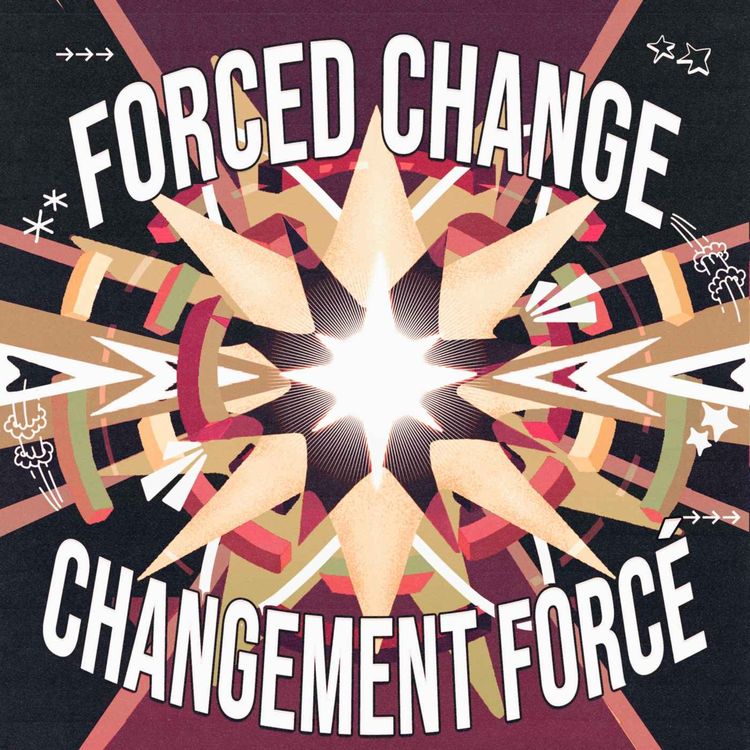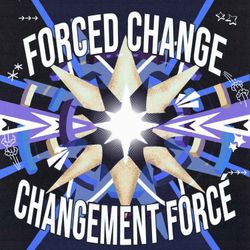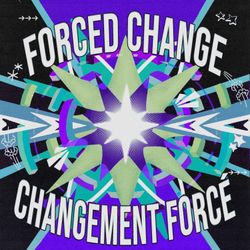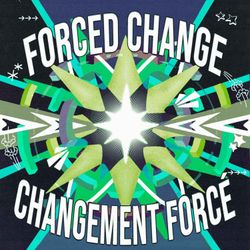Share

Forced Change/Changement Forcé
Technology and What We Changed in the Pandemic
In journalism schools, radio, television, and multimedia courses depend heavily on an in-person learning experience, especially as students rely on the studio equipment in the campus newsroom. That had to change when the pandemic forced everyone to work at home. In this episode, host Nana aba Duncan speaks with three journalism educators on how they navigated that change from an in-person studio experience to a virtual one. What tools did they use to recreate the studio experience at home? How did they address the inequities that come with students using different equipment? And what were the lessons they learned in adapting to the pandemic?
This episode features:
- Roger Martin, IT coordinator at Carleton University
- Andrea Hunter, associate professor at Concordia University
- Winston Sih, instructor at Toronto Metropolitan University
- Nana aba Duncan (moderator), associate professor at Carleton University
Watch the full panel discussion
Resources:
Forced Change - Changement Forcé is a podcast produced for Facts and Frictions/Fait Et Frictions by journalism students at Carleton University and at Université du Québec à Montréal, and is part of a research project led by Trish Audette-Longo, Nana aba Duncan, Chantal Francoeur, Christine Crowther and Shenaz Kermalli. The podcast and special issue were made possible thanks to funding and support from the Social Sciences and Humanities Research Council of Canada, Carleton University's Future Learning Lab, J-Schools Canada, and Carleton’s School of Journalism and Communication, Faculty of Public Affairs, and the Office of the Vice-President.
More episodes
View all episodes

4. How To Teach Anti-Oppressive Journalism in a Pandemic
45:02||Ep. 4As journalism programs were faced with the pandemic, they were also faced with calls from students to address systemic racism from within. But the stress of having to deal with both has impacted both instructors teaching anti-racist courses and the students in them. In this episode, Eternity Martis, assistant professor at Toronto Metropolitan University, brings together journalism educators to discuss their experiences teaching anti-racist courses in their respective schools. Shari Okeke, assistant professor at Toronto Metropolitan University, moderates the discussion as the group shares how they navigate the pressures of having to be the instigator of change in their faculty without burning out and strategies to help Black, Indigenous and other students of colour who felt like they didn't see a place for themselves in the journalism industry. This episode features:Eternity Martis, assistant professor at Toronto Metropolitan UniversityShari Okeke, assistant professor at Toronto Metropolitan UniversityAdrian Harewood, associate professor at Carleton UniversityAsmaa Malik, associate professor at Toronto Metropolitan UniversityDuncan McCue, associate professor at Carleton University Link to episode transcriptWatch the full panel discussionForce Change - Changement Forcé is a podcast produced for Facts and Frictions/Fait Et Frictions by journalism students at Carleton University and at Université du Québec à Montréal, and is part of a research project led by Trish Audette-Longo, Nana aba Duncan, Chantal Francoeur, Christine Crowther and Shenaz Kermalli. The podcast and special issue were made possible thanks to funding and support from the Social Sciences and Humanities Research Council of Canada, Carleton University's Future Learning Lab, J-Schools Canada, and Carleton’s School of Journalism and Communication, Faculty of Public Affairs, and the Office of the Vice-President.
3. What Does A 'Trauma-Informed Journalist' Look Like?
49:18||Ep. 3What does a “trauma-informed journalist” look like? What are the specific competencies associated with being a trauma-informed journalist? And what are the metrics used to measure the efficacy of current training on trauma-informed approaches to reporting? In this episode, Matthew Pearson, assistant professor at Carleton University, digs into these questions with other journalism educators and moderates a discussion on how journalism schools are starting to recognize the need for trauma-informed journalism training, and how to support students in tackling those difficult stories.This episode features:Matthew Pearson, assistant professor at Carleton UniversitySaranaz Barforoush, assistant professor at University of British ColumbiaDuncan McCue, associate professor at Carleton UniversityKelly Roche, assistant professor at University of King’s CollegeLink to episode transcriptWatch the full panel discussionResources: Taking Care ReportDart Center for Journalism & TraumaCanadian Journalism Forum on Violence and TraumaForced Change - Changement Forcé is a podcast produced for Facts and Frictions/Fait Et Frictions by journalism students at Carleton University and at Université du Québec à Montréal, and is part of a research project led by Trish Audette-Longo, Nana aba Duncan, Chantal Francoeur, Christine Crowther and Shenaz Kermalli. The podcast and special issue were made possible thanks to funding and support from the Social Sciences and Humanities Research Council of Canada, Carleton University's Future Learning Lab, J-Schools Canada, and Carleton’s School of Journalism and Communication, Faculty of Public Affairs, and the Office of the Vice-President.
1. Mentorat, Gentillesse et Journalisme de Données en Temps de Pandémie
48:09||Ep. 1Le balado, animé par Chantal Francoeur, met l’auditoire en contact avec des étudiants en journalisme de l’Université du Québec à Montréal qui parlent de mentorat et de médias étudiants; le coordonnateur du programme de journalisme numérique à l’université d’Ottawa, Jean-Sébastien Marier, qui parle de journalisme de données; et l’étudiante de l’université de Carleton, Christianna Alexiou, qui nous emmène dans des réflexions sur une pédagogie empathique et gentille.